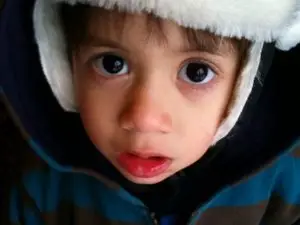“A child seldom needs a good talking to as a good listening to.” Robert Brault
“Even as kids reach adolescence, they need more than ever for us to watch over them. Adolescence is not about letting go. It’s about
hanging on during a very bumpy ride.” Ron Taffel“Family life is a bit like a runny peach pie – not perfect but who’s complaining?” Robert Brault
“Good discipline requires time. When we have no time to give our children, or no time we are willing to give, we don’t even observe them closely enough to become aware of when their need for our disciplinary assistance is expressed subtly.” M. Scott Peck
I am a believer of disciplining with love. All of the smacking, hitting, dragging and pushing of kids, is brute force that says “I am in charge because I have more muscle and I dictate the rules.” How many people are from homes such as these and grew up in fear. I am sure more people suffered at the hands of forceful parents, who believed they knew the truth and it was going to be followed.
It was almost as if you had to respect your parents or you weren’t showing love. Hitting tells them they can hit when they are older just not when they are little. yelling tells them might makes you right. The quick fix for disciplining is hitting yelling and screaming so it will result in pain, that the child will remember. Parents don’t have to respect their children and that is where the problem lies.Kids are not thought of as important enough to render respect. They are immature, have lots to learn, are impatient angry impulsive demanding, time-consuming, expensive, disruptive, whiny and full of questions. This likely is all true at times. What is also true is kids are lovable, forgive everything and anything, are full of compassion, empathy, satisfaction with simple things, love to learn about all things, including a job we find boring. They strive to act maturely, are the key supporters of spending their time with parents, and adore parents to the point of interrupting others because they miss and want their attention. Parents are asked a zillion questions, because mom and dad know everything. Kids try to act older, because they believe that is what mom and dad want, and would not trade the worst of us, nor stop loving any of us. Kids truly love unconditionally.
Some parents walk away and leave it up to others to feed, discipline, care for, teach and love their offspring. It is the finest and most honorable job in the world, yet so many regard parenting as a huge burden. Some people even regret entering into it in the first place. Maybe as a society we have not held children in high esteem. Our kids many times are a reflection of us, and we hold the power to produce something worthwhile. There are always exceptions, but most kids are being smacked, quieted and at times ignored. They need time and attention. Of course if we don’t value them, how can we suppose to attempt any effort towards parenting in general. Isn’t it believable that what is important and worth having takes effort?
Disciplining with love and time and effort is the most crucial thing we can learn, if we want to have compassionate empathetic and loving children. It costs us some time and demands patience to stop whatever we are doing, and explain how and why the child’s behaviors need improvement. Make analogies, and teach the child to comprehend why their deeds were unacceptable. Discussions allow them to comprehend situations, and reasons parents are upset in the first place.
We must be good observers and pay attention to our child’s actions, well before an issue arises. What transpires before a skirmish, is important to know. I don’t think it is relevant to always criticize a child in front of others. We might take a child aside or into a quieter place and resolve the issue. Kids can’t always explain in words, how things transpired. An earlier conflict they suffered, might make them retaliate at a later time. As parents we may only be privy to the current upsetting conduct. By treating kids with respect, we give them the honor to explain why they did something cruel, and then we might explain how they might have handled it. Nobody needs to be destroyed physically or morally. Kids are little people. They haven’t learned all of the rules.
I remember one parent always stating it hurt her ears when her child screamed. Her child was quick to stop when she’d mention this during a screaming match. Another parent softly spoke to her child and stated, “When the yelling stops we can talk.” She always made it a priority when the child was ready. One could say the child had the power to dictate the time but actually the parent had the power to dictate the terms, which the child had to follow. This gave the child ownership of the situation. He got to choose the next step. When the child has ownership of their actions, they take the responsibility of accepting the consequences. It is out of the parent’s hands.
Children like adults, enjoy having choices. You don’t have to eat the vegetables but you don’t get the desert. If you want free time with friends, clean up your room, because it is your responsibility. If you hit other children, we can’t have them around you, because they need to be made safe. If you can’t apologize to your friend, then he won’t be able to come and play, until you understand the importance of caring for others. Having a friend is being a friend.
Sharing might require having the child remember a time another shared with them. Parents can be as innovative as they want with instructions. It takes time and effort. The parent has to perceive themselves as the teacher, and not the student. If we act like our kids then we have no parenting going on.
Children don’t complain yell or hit to anger us or retaliate against us. They are not necessarily planning to mess with our minds or heart. They are surface most of the time, and our anger is due to the requirement we have to give more time and effort to an erring child. We would rather continue our conversation with a friend. Facebook, or more appealing activities, can easily take precedence over disciplining with love. At a party there is plenty of food and camaraderie, so taking time for reprimanding at a teaching moment, is not attractive, due to the effort needed. Other days we are just too tired to manage the energy, to deal civilly with our child.
As hard as parenting is, if we understand what the requirements are, and the guidelines we should follow, it makes it easier to accept and do an honorable job. We benefit as much as the child. We are sending moral individuals into the world. If they have never been hit, then perhaps they will never get physical with other human beings. If we have used kind language, and loved with a gentle heart, our kids will be empathetic and compassionate with others.We all have tempers, but teaching our kids how to control their temper, empowers them to have the strength to accomplish great things. Overcoming unfairness, teaches persistence, and teaching tolerance, gives them a free pass to be accepted despite their faults.
What we sow, we will reap. We all enjoy freedom of thought and expression. Appreciating that, and teaching a peaceful way of interacting, is important to their future lives. Demonstrating what is relevant, is teaching its’ importance. Model, talk, explain, teach, accept, value, respect, and most importantly unconditionally love. Let them know that you will always love them, regardless of any transgressions they make. That will give them wings.
“I Regard (Parenting) the hardest, the most complicated, anxiety ridden,
sweat-and-blood producing job in the world. Succeeding requires the ultimate in patience, common sense, commitment, humor, tact, love, wisdom, awareness, and knowledge. At the same time, it holds the possibility, for the most rewarding, joyful experience
of a lifetime, namely, that of being success guides to a new and unique being.” Virginia Satir“Don’t demand respect as a parent. Demand civility, and insist on honesty. But respect is something you must earn with kids as well as with adults.” William Attwood
“Affection without sentiment, authority without cruelty, discipline without aggression, humor without ridicule, sacrifice without obligation, companionship without possessiveness.” Willian E. Blatz


